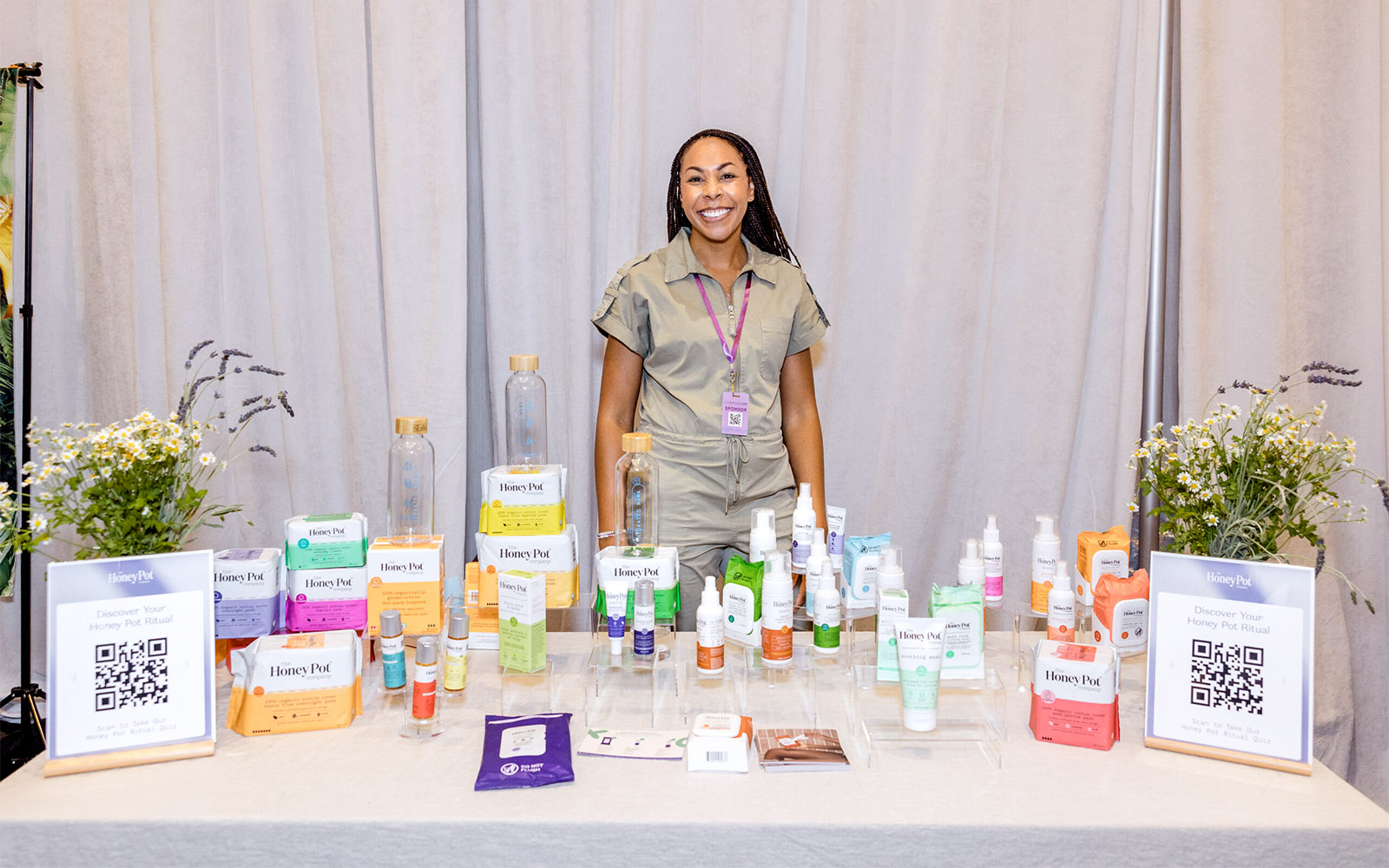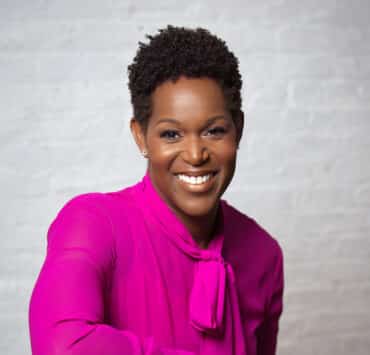|
Getting your Trinity Audio player ready...
|
Jazmyn Williams, director of brand marketing at the Honey Pot Company, was at her daughter’s preschool graduation when she received a cold call that would inspire a career-defining moment just six months into her role. The idea—partnering with Strapt, a restroom vending machine start-up to distribute her company’s period products—intrigued her; she agreed to discuss more after the ceremony. It would mark an exciting day of milestones for both mother and daughter.
When it comes to achieving a goal like building brand awareness, there’s that adage that says it all comes down to being in the right place at the right time. For Williams, that place was the Mercedes-Benz Stadium in Atlanta, and the time was Beyoncé’s Atlanta concert for her 2023 Renaissance WorldTour. More than seventy thousand fans would fill the venue to dance, sing, and likely take a few bathroom breaks. Williams crafted a proposal, pitched it, and then she and her team got to work.
Fifteen Strapt cashless vending machines were scattered across stadium bathrooms, stocked with thousands of Honey Pot tampons, pads, and cleansing wipes in custom boxes, available for nothing but an email address. Fans not only took advantage of the offering but also stopped to snap selfies. After all, it’s rare to find an aesthetically pleasing tampon dispenser, not to mention one that doesn’t require any quarters.
“We’re a brand that is all about inclusivity. . . . We try to refer to our community as vagina owners and not immediately as women because we understand that there’s a variety of lived experiences and we want to be as inclusive as possible.”
Jazmyn Williams
The success was threefold, the director of brand marketing reports. “I knew it would give us the press to garner more brand awareness, and so that was huge,” she says. “Plus it was relatively low investment for that level of exposure.” Third, the campaign served as a pilot to test individual product sampling, something the brand has yet to crack.
“I would say this is my biggest work win, my biggest at the company since I started,” says Williams, whose previous marketing roles supported the likes of Meta and the Coca-Cola Company.
Williams is clearly a fan of Queen Bey, but the intention to distribute products at the concert was rooted in the intersection of values between the singer and the Honey Pot. Beyoncé’s Renaissance album has been lauded as a celebration of the Black queer community, and the Honey Pot is a Black-founded vaginal wellness company centered on empowerment.
“We’re a brand that is all about inclusivity,” Williams explains. “One of our trademarked taglines is, ‘made by humans with vaginas, for humans with vaginas.’ We try to refer to our community as vagina owners and not immediately as women because we understand that there’s a variety of lived experiences and we want to be as inclusive as possible.”

Photo by Iris Mannings
The director of brand marketing adds that the “vibe and energy of the concert” felt like the perfect match. “We’re really proud to be able to be offering free menstrual products to any vagina owner at such a grand venue during such a cultural moment,” she says. “What Beyoncé has done to celebrate the LGBTQ community and elevate their culture, their contributions—I mean, if you really understand all of the songs and the inspiration, even behind the album, there’s just a lot of greatness there. And so we’re excited to be a morsel of that, at least in Atlanta.”
That was only the beginning. Armed with plenty of press attention from the concert and plans for more events at the Mercedes-Benz Stadium throughout the year, Williams notes that the Honey Pot is taking advantage of the publicity to create more social impact. “It’s further punctuating the need for more access to period products and period equity like other countries are doing, or state legislation,” she says.
The Honey Pot donates products to partner organizations like Days for Girls, an international nonprofit with chapters around the world and in the US that advocates for global policy change and increases access to menstrual supplies, especially for girls who are forced to miss school because they don’t have any.
“We want to make sure that our products are always coupled with education, that education comes first.”
Jazmyn Williams
Williams is proud that the Honey Pot always places an emphasis on education over product. “We want to make sure that our products are always coupled with education, that education comes first,” she says. The brand’s website offers a quiz to help consumers determine which products might pair well with their individual sensitivity levels, experiences, or conditions.
The Honey Pot’s products—which have expanded beyond period care and intimate hygiene to sexual wellness staples like lubricants and stimulating serums—are packaged in light, bright colors and made with plant-derived and herbal formulas that couple well with the brand’s approachable and uplifting aesthetic.
The company uses its social media platforms to post content that is funny and informative, sharing everything from anatomical infographics with cheeky names like “get cliterate” to relatable reels about “heavy flow” days. Williams, who says the Honey Pot is the most followed feminine care brand on social media, has the goal to “destigmatize what is normal and normalize what is common.”
The company also recently partnered its online educational hub, the Pulse, with a digital health platform called Health in Her HUE. “They focus on providing a directory of culturally responsive medical providers for Black women and women of color, who have been historically underserved by the medical community,” Williams says. The platform also offers “virtual care squads,” which are bimonthly peer support groups with medical professionals and staff members that discuss specific health topics.
“[The goal is to] destigmatize what is normal and normalize what is common.”
Jazmyn Williams
“We’re excited about how we can bring our community more educational resources that go beyond what we’re able to provide . . . [such as] breast health or dermatology, just certain topics that are slightly outside the reach of our brand,” Williams says. “We want to make sure there’s a trusted source for them to go to that is also culturally sensitive, responsive, [and] connecting.”
Working for the Honey Pot is a dream job for Williams, whose career purposes have always been based in equity, education, and community—or “the things that you can’t necessarily measure at the end of the year with a dollar sign.” But for her, that’s not the point.
“My friends use the products, my mom uses the products, eventually my girls will need to use the products,” she says. “And so, knowing that every day, the work that I’m doing is actually impacting my community and changing the trajectory of vaginal wellness is so meaningful.”















